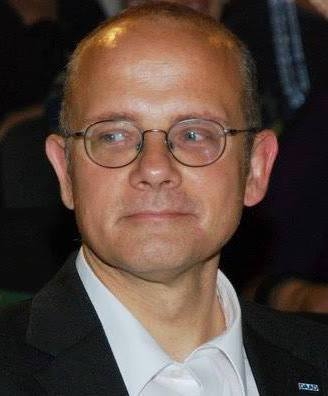On May 7th, 2008, the 42-year-old jurist Dmitry Medvedev will be inaugurated as the new President of the Russian Federation. Seemingly, Medvedev, in his turn, will name Putin Russia’s Prime Minister, soon afterwards. Whatever these moves may, in the end, entail for the exact redistribution of power in Moscow, they imply that Medvedev will become Russia’s official leader. Medvedev’s rise means that Russia might have a serious chance to embark anew on a course of political liberalization and democratization. It will provide a welcome opportunity for Western governments and organizations to re-establish trustful relations with Moscow. It, however, also implies that Moscow politics will become ideological again: Medvedev’s office may become the focal point of liberal and pro-Western trends in Russia, while another institution could become the power basis of Moscow’s anti-Western nationalists.
During recent years, Medvedev repeatedly and publicly positioned himself as a moderate, pro-democratic politician whose foreign policy preferences are pro-European, if not pro-Western. This is not surprising, if one considers Medvedev’s early political biography. In assessments of the current Deputy Prime Minister, often the focus has been on the linkage between Medvedev’s and Putin’s career in the 1990s. What has drawn less attention by observers is that Medvedev became a pro-democratic activist even before meeting Putin, at a period of time when the latter was still serving for the KGB in East Germany. In late 1988, at Leningrad, as St. Petersburg was then called, Medvedev joined the team of famous Russian democrat Anatolii Sobchak and participated actively in Sobchak’s successful campaign for a seat in the last Soviet parliament, the Congress of People’s Deputies of the USSR. At that moment, Medvedev was a graduate student and lecturer of legal studies at Leningrad State University where Sobchak worked as a Professor of Law. Putin had made the acquaintance of Sobchak earlier when, in 1970-75, he was earning his undergraduate degree in international law at Leningrad University where Sobchak became an Assistant Professor in 1973. Entering the KGB after graduation, Putin was, however, never a member of the Soviet Union’s democratic movement. The current Russian President began his political career only later, when, in 1990, the KGB seconded Putin to his alma mater and he re-established his acquaintance with Sobchak there – either accidentally or on the behest of his superiors.
Sobchank and his then assistant Medvedev were, in the late 1980s, among those who were risking their professional careers (if not more) by coming out publicly as critics of Stalinism and supporters of Gorbachev’s Perestroika. Putin joined Sobchak’s team only after the latter had been elected Speaker of the St. Petersburg City Council (Lensovet), in May 1990. In distinction to Putin, Medvedev can be counted as at least a temporary member of the pro-democracy movement that brought down Soviet one-party rule.
For these reasons, Medvedev’s election is better news for Russian-Western relations than is currently predicted in most comments on the former Deputy Prime Minister’s rise. Russia’s next president is not only an enlightened lawyer and representative of a younger generation of Russia, but a one-time anti-Soviet activist with democratic credentials. Against this background, Medvedev’s frank rejection of the Kremlin’s new concept of “sovereign democracy” – a formula designed to justify governmental meddling in mass media, party politics and civil society – is of little surprise. The picture becomes complete when considering Medvedev’s exceptionally strong condemnations of post-Soviet ultra-nationalism and antisemtism.
In the future, the West will not only have to consider that the formally highest representative of Russia can be counted as a supporter of the catalogue of basic Western values such as political pluralism, division of power, checks and balances etc. The West will also have to develop a strategy for how to behave with regard to the coming re-ideologization of high politics, and power struggles in Moscow. Medvedev’s rise and the emergence of a “pro-Western tower” in the state apparatus will not, by itself, entail that Moscow transforms herself into an ally of the EU or NATO. Rather, Russia’s domestic politics will again become confrontational in as far as the rise of Putin’s young successor with a circle of similarly minded allies in the government around him will mobilize and unite the large anti-Western constituency in various sectors of the Russian elite. We may soon observe the emergence of another, different “tower” in the Russian state apparatus around which Moscow’s various anti-Western politicians, publicists and bureaucrats will unite. One fears that the power-hungry cynics around Putin might, in the face of a re-democratization of Russia “from above,” go for an alliance with Russia’s numerous ultra-nationalist groups and intellectuals like Sergei Kurginian, Aleksandr Dugin and Aleksandr Prokhanov.
While Medvedev’s rise as such is good news for Russian-Western relations, it makes a forecast of Russia’s future internal development and foreign policies more complicated. The West will have to choose a prudent course of supporting possible pro-democratic changes initiated by Medvedev while not undermining his authority in Russia. Russian public opinion and, especially, Moscow’s elite discourse has become anti-Western and particularly anti-American to a degree where demonstrative support by the West weakens rather than strengthens the position of a public politician. Russia’s future looks again more promising, yet also more unpredictable than before.
An earlier version of this argument appeared, after Medvedevs' nomination for President in December 2007, in the web journal “Russia Profile” (www.russiaprofile.org).





